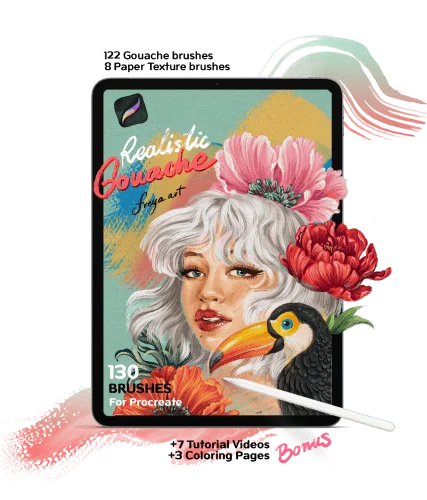
Author
Criticism will always be part of every artist’s life. I have yet to encounter one that doesn’t receive any kind of feedback, constructive or otherwise. This is a consequence of putting ourselves out there and sharing our art to the world. We subject ourselves to the public’s gaze and judgment. It is never an easy thing to deal with harsh or negative comments on your work.
Art is for the most part, a subjective experience. When we make art, we use our own thoughts, feelings and experiences as inspiration. We essentially give a piece of ourselves and embed it into the very core of our work. This is why a lot of art can be so profound and is able to establish genuine connections. Its very essence stems from the uniqueness of the artist’s circumstances and ideas. So when that kind of work gets negative feedback, it could feel quite personal. I would know, I get them all the time, especially online. But one thing is for certain: mean comments have never stopped me from doing what I love to do—making art.
In this article, I’ve laid out a few guidelines to remember when receiving feedback. We can’t really control the opinion of others and how they choose to express that. However, we can control the way we react and internalize other’s words.
When we receive negative comments, it’s important that we don’t give hasty responses that are fueled by anger. Take the time to read and listen through their statements, and ask yourself whether they are making actual valid points or are they just internet trolls? Learn how to differentiate between individuals. Ask yourself, are they professional artists? Are they successful? Are they telling the truth? Analyze their statements logically. Don’t take it personally as there are many people who are not familiar with the process of drawing.
Receiving feedback can be daunting but also insightful. As I have mentioned, when we put ourselves and our work in the spotlight, expect for criticism to follow. Some criticisms can be a straight arrow to the heart. It never really feels good for others to throw your mistakes at your face. However, it is important that we learn how to keep our pride in check and try to be open-minded. Look at it as an opportunity to see your work in someone else’s eyes and discover weaknesses you might not have noticed before. You don’t exactly have to agree with everything but you should still be willing to listen. Take note of what others have to say for improvement.
Strive to be an honest judge of your own work. It is easy to be swept away by our emotions when we get defensive of our own work. There is no shame in feeling this way but we also have to know how to reel it in. Remember, the feedback is not on you but on your work. Genuine constructive feedback will pinpoint flaws or possibilities for improvement in your art or your process. Sometimes, it’s not a direct attack to your own person or your value as an artist.
No matter how many comments or feedback you receive, you get to decide if you want to use or ignore it. Sift through every opinion, comment or statement about your art and look through them carefully. Analyze them and pick out the ones that you think will help you improve in your art, be it with technique, color choices or something in your composition. It keeps us on our toes and forces us to learn how to adapt. It also helps us see the areas in need of improvement.
Sometimes, when people give feedback, it can be quite vague and abstract. So ask questions, not to argue but to try and start a meaningful and respectful conversation between you and your critic. Accept your mistakes graciously and be sensible in voicing out your own opinions. Those who provide constructive criticism will be willing to maturely express their thoughts and opinions to you.
There are a couple of takeaways that I would like to tackle as my final remark. If you’re into art as a hobby, you don’t need to concern yourself too much about criticism or compliments. Just keep doing your thing. The most important thing you need to focus on is to continuously improve your art. As a professional illustrator, it’s important to pay attention to the client’s critiques. The main reason is because they are paying you and will use your artwork for their business. Don’t listen to random people on the internet. They may be quick to negatively judge your artwork but are unable to give constructive feedback. If you’re a business owner of online art courses like me, criticisms are valuable. They can be little nuggets of information that is vital in improving the business. Compliments can also act as motivation to keep producing quality content.
Negative feedback is unavoidable. There will be times when you will receive a comment that just stabs you straight into the heart. But do not let it overshadow the positive feedback and encouragement you will also receive. Focusing on the brighter side will also make it easier to bear criticism. Remember, there are still people who find happiness in your work and take the time to appreciate it.

I am giving away a copy of my Procreate Toolkit to anyone joining my 100% FREE Cherry Chat SMS club. The Toolkit includes 80+ Procreate Brushes, 3D models, Stamps and other Assets!
Get Free GiftLooking to level up your Procreate game? Our guide has got you covered with all the online learning resources you need to become a digital art wizard! Well, well, well, look who wants to level up your Procreate skills! Good news is the internet is bursting at the seams with ways to learn this incredible […]
Procreate Courses intro - Mini-courses are short, up to 90min courses including 1 exercise. I release them together with Procreate brushsets. They include 1 whole procreate brushset in the price as it’s required.
Procreate Brushes intro - Mini-courses are short, up to 90min courses including 1 exercise. I release them together with Procreate brushsets. They include 1 whole procreate brushset in the price as it’s required.